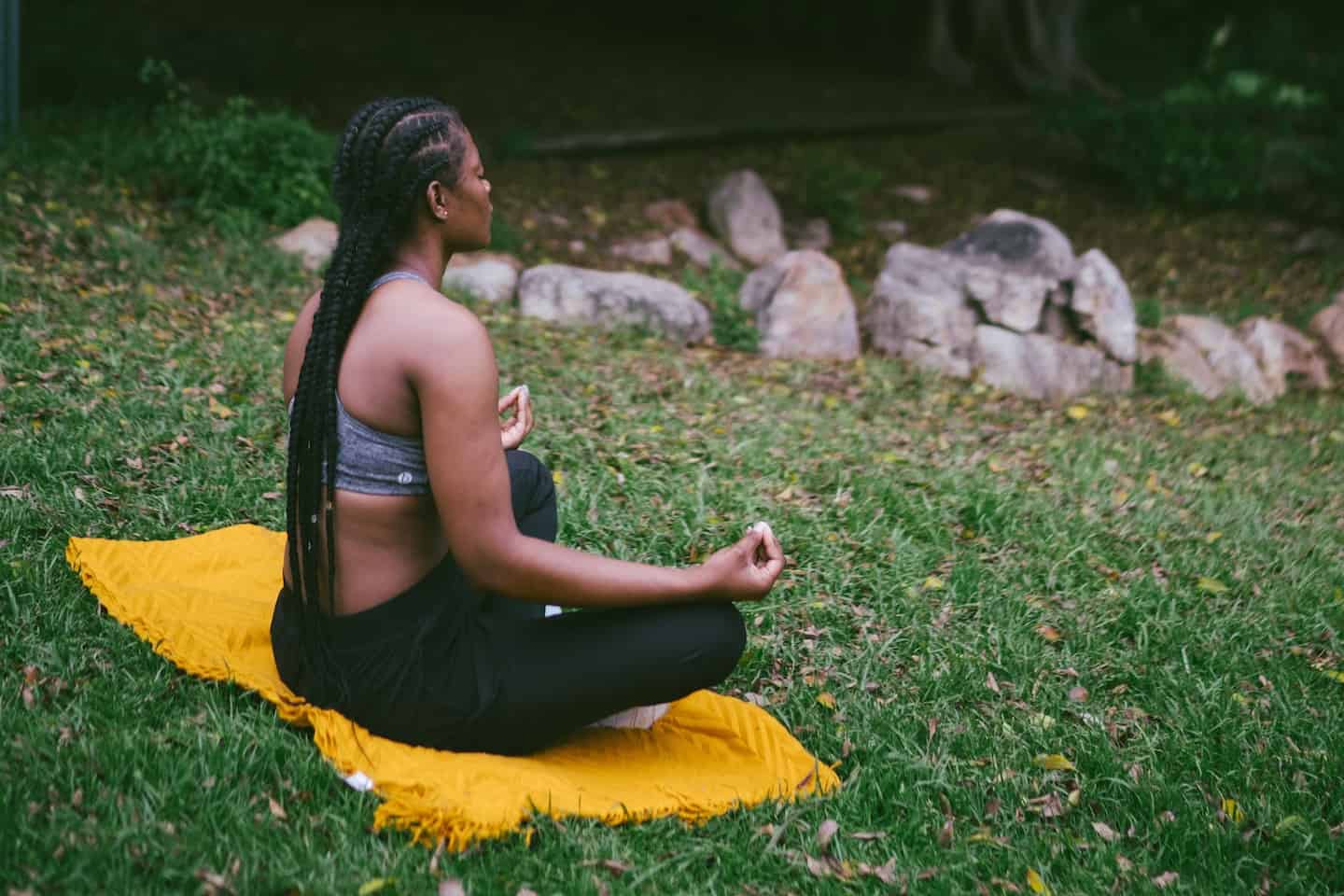I grew up knowing that meditation was good for me. Our high school guidance counselors frequently suggested meditation to us as a stress-management technique. Experts on The Oprah Winfrey Show recommended meditation. Multiple media outlets frequently reported on the benefits of meditation. Like many people, I had the knowledge that meditation is good for you—but I still didn’t do it. Why? Mostly I believed I lacked the time. Not to mention that I simply got bored if I had to sit still for longer than 10 minutes. I know I’m not alone. Many people agree that meditation is good in theory, but they struggle to practice it. In Meditation for Fidgety Skeptics, author Dan Harris provides a pretty bold solution. He asserts that one minute of meditation (nearly) every day can be beneficial. I know what you’re thinking: One minute? How can anything positive come out of only one minute of meditation a day? One minute of meditation is just a stepping stone. It’s an excellent start for those who struggle to get into meditation—or those who are skeptical of the practice in general. Here’s why.
1) It makes you aware of the buzz within your own mind.
If you’ve ever tried meditation, you probably realized that it’s really hard to soothe your brain: Your thoughts are constantly buzzing around in your mind. Truthfully, though, this is a good thing. This awareness of your own thoughts is beneficial in itself, Harris said in an interview with NPR. He notes that beginner meditators realize that their minds are constantly busy, which is an important realization in itself. Once we begin to notice how busy our brains are, we have a better understanding of our thoughts. Take, for example, my own experiences with meditation. I often have mean or judgmental thoughts, like everyone else. For example, I might judge a person by their appearance or I might have body-negative thoughts even though I don’t put much stock into looks. I might not believe these things, but I still think them. My gut tells me to be ashamed of these thoughts and hide them instead of unpacking them. When I became aware of how many thoughts flow through my mind, I realized that the loudest thoughts aren’t necessarily ones that need to define my actions or my attitude. I’ve learned to examine the thoughts I have and process them instead of letting them rule my actions. One minute doesn’t seem like enough to clear your thoughts, but that’s not what you’re aiming to do. An awareness of that “buzz” in your mind is super beneficial in itself, and it can be achieved in just one minute.
2) It helps you form a habit.
Forming a habit is extremely hard but extremely rewarding. One of the many tricks when it comes to forming a habit is routine. The key is consistency, not quantity. Doing something everyday-ish, as Harris says, means you’ll be able to form the habit and become acquainted with doing it often. Ten minutes a day can be pretty hard to set aside, but I think we all have at least one minute where we’d otherwise be scrolling through social media. It’s easier to commit to one minute a day, which means this habit will be easier to stick to.
3) You’ll likely increase the time you spend meditating.
Once you’ve formed that habit, it will be easier to increase the time you spend meditating. Scientific studies have suggested that meditation improves one’s emotional wellness. Gratitude meditation has been linked to better mental health and emotional regulation, and other studies have shown that meditation can improve your ability to cope with stressful circumstances. Even better, experts have suggested that the optimal amount of time for meditation each day is five to 10 minutes. Spending 10 minutes a day meditating is a hard sell if you’re unsure if it works. One minute, on the other hand, isn’t much to lose. Once you try it for a minute each day, you’ll see the benefits. Meditating will sell itself. Once you’re into it, it’s easier to think, Hey! I can do this for a few more minutes. Soon you’ll build up to a longer amount of time. More minutes spent meditating equals more benefits for you!
How to Start Meditating
Yes, 60 seconds of meditating per day can be super useful—but if you’ve never done it, you might be wondering where to start. First, remember to keep your expectations low. You won’t be able to “calm your mind” immediately, nor will you be able to clear your thoughts. Let them buzz. Notice them. Try not to get wrapped up in them; instead, watch them float by like you’re watching a movie. Second, being comfortable is important. You probably don’t need a meditation cushion as you’re only still for a minute, but you should sit in a comfortable space free from distractions. Try to focus on something still, like a simple object in front of you or a wall. You can also focus on your own breathing. For beginners, focusing on something tangible is a fantastic way to get into meditation. Still struggling? Try a guided meditation or download a meditation app like Headspace. Remember that you don’t need to be a mindfulness master to get meditation to work for you. Even if you feel like you’re not doing it “right,” it can still benefit you—one minute at a time.



